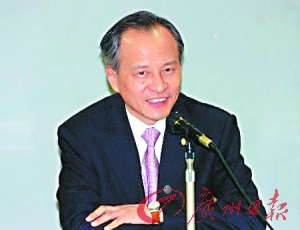Foreign Ministry has 3 new deputy heads
 |
|
Cui Tiankai |
When Cui Tiankai was sent to Japan as China's ambassador in 2007, there was much skepticism over his appointment.
Will a diplomat with a sketchy experience dealing with the neighbor be able to do a good job in a country where connections matter?
Indeed, the doubts then appeared well-grounded going by Cui's resume.
The 58-year-old was born in Shanghai and worked as a farm hand in Heilongjiang province from 1969 to 1974. Subsequently, Cui obtained a bachelor's degree in English from the Shanghai-based East China Normal University.
He then worked as a translator at the United Nations' headquarters from 1981 to 1984 before joining the Ministry of Foreign Affairs. Three years later, Cui received a master's degree from Johns Hopkins University in the US.
It was not until 2003 that Cui's career became somewhat connected with Japan after he was appointed director of the ministry's department of Asian affairs that year.
In fact, in an interview to Xinhua News Agency last year, Cui confessed that he was not a Japan hand and that he "had never tried to learn Japanese" until he was appointed ambassador.
His straightforward approach, widely hailed by many netizens, too seemingly went against Japanese culture.
But those doubts disappeared when Sino-Japanese ties started thawing during Cui's more than two years at the helm as China's top envoy, coming as it did especially after a freeze during Junichiro Koizumi's term as Japan's prime minister.
A landmark event in bilateral ties took place in 2008 when the two nations released their fourth joint statement. The previous one was signed 10 years ago.
"Appointing a non-Japan hand as ambassador was an unprecedented trial," since Beijing and Tokyo traditionally appoint people familiar with each other's culture as ambassadors, Kato Yoshikazu, a Japanese writer and commentator, told China Daily yesterday.
Yoshikazu described Cui as "cautious, candid and good-natured".
On the one hand, Cui is "lucky" because China-Japan ties were at its best during his term, Yoshikazu said.
On the other, his effort was equally important in promoting the ties, Yoshikazu said.
Cui brokered many high-level official visits during his term. He stayed tough on sensitive matters such as the East China Sea oilfields but remained flexible on some other issues. He also turned the Sichuan earthquake into an occasion to cement links between the two peoples.
Cui's ability to handle crises also shone through.
He organized Chinese students to guard the Olympic flame when protesters threatened to disrupt the torch relay in Japan in 2008.
A Beijing-based professor who is close to Cui's inner circle said the diplomat was "a man with his feet on the ground".
Cui is expected to replace former vice-minister of foreign affairs, Wu Dawei, as China's chief negotiator in the Six-Party Talks on the Korean Peninsula nuclear issue. This time round, few will question his ability, Yoshikazu said.
 0 Comments
0 Comments







Go to ForumComments